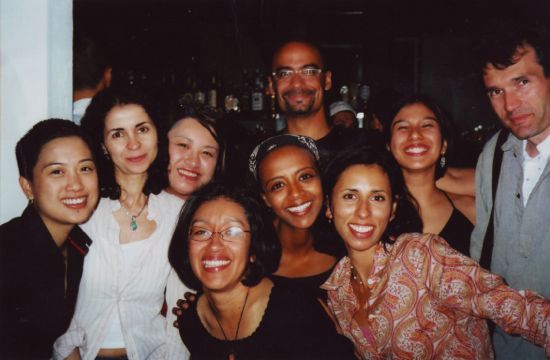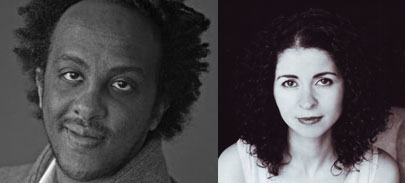Category: literary life
Wait for the right time. Wait for the right place.
Be in awe of your novel’s premise. The best premises in the world still don’t add up to a completed book.
Get up from the chair. Tell yourself you’re just taking a five-minute break. Make coffee. Look for your special mug. You were drinking from it when you sold your first story, so now you must have it in order to write anything. Get back in the chair.
Stare at the screen. Wonder what your agent will think about your new novel, which, by the way, you’re not writing because you’re reading this instead. Wonder what readers will think. Wonder what critics will think, especially the asshole who did a hatchet job on your last book. Worry about your career, such as it is.
Think about your premise again. All it needs is careful execution. But when that’s done, oh, it will be amazing. This book is finally going to make you happy. And popular! All those people who made fun of you in high school are going to feel mighty sorry about the way they treated you. Dream about publication. Wait a minute. Will there be any bookstores left by the time you finish this book? Will there be any publishers left, even?
Google yourself.
Login to Twitter. Argue with an anonymous stranger about political issues neither of you will ever resolve. Login to Facebook. Argue with your crazy uncle about political issues neither of you will ever resolve. Scroll through your newsfeed, look at pictures of your friends at cocktail parties. They all look so happy. Why? Because they’re not trying to write, that’s why. Dwell on your loneliness.
Read your Amazon reviews. Who the hell is ‘kafkaisoverrated75’ and why did he give you a one-star review?
Get up from the chair. Alphabetize your bookshelf. Straighten your picture frames. Rearrange everything on your desk. Get back in the chair. Start reading blogs. Someone posted a tirade about MFA programs. Feel compelled to write a response, which turns into another long tirade about MFA programs.
Oh God, how did it get to be 11 am already? You have to start grading papers soon. Wish you had more time.
Notice the pages you wrote last week. Read them, decide they’re useless, toss them in the trash. Wish you had more talent.
Make a necklace out of paperclips. Check your email. Ignore your credit card bill. Unsubscribe from newsletters. Decline invitations to connect on LinkedIn.
Stare at the screen. Doubt the work. Fear the world. Ask yourself how you ever wrote anything at all before. Read an interview with Toni Morrison in the Paris Review. She wrote The Bluest Eye while holding down a full-time job at Random House and taking care of two children. She got up at 5 am every day. What’s your excuse?
Rummage through the trash, pull out the pages you tossed. Reread them. Maybe there’s a sentence here that can be salvaged.
Tell yourself you’re just taking a five-minute break.
Posted to Twitter on June 2.

Writers write.
Those who write finish a manuscript.
Those who finish a manuscript want an agent.
Those who have an agent want a book deal.
Those who have a book deal want an even bigger book deal.
Those who have a big book deal want great reviews.
Those who have great reviews want huge sales.
Those who have huge sales want literary prizes.
Those who have literary prizes want movie adaptations.
Those who have book deals, reviews, sales, prizes, and movie adaptations want time to write.
Writers want time to write
Writers want time to write.

Last week, The New Yorker published an essay by Junot Díaz about his experience as a person of color in the Master of Fine Arts program at Cornell University. Of his time in the program, he wrote:
I didn’t have a great workshop experience. Not at all. In fact by the start of my second year I was like: get me the fuck out of here.
So what was the problem?
Oh just the standard problem of MFA programs.
That shit was too white.
Díaz goes on to describe the problems he faced: the faculty was not diverse, the curriculum skewed toward white male authors, there was a pervasive silence about issues of race, etc. These are experiences that feel familiar to me. When I took writing classes in the U.S., I discovered very quickly that my literary references were different from those of my classmates. I had read Abouzeid, Mahfouz, Saramago, Choukri, Marquez, but they were writers whose work was never included in reading lists on the craft of writing. If, in the course of a discussion on plot or character or point of view, I brought up an African or South American writer, my example would usually fall flat and immediately be superseded by a more familiar (white) writer. Once, I remember, I was told that I had to completely rewrite one of my stories: instead of it being about Moroccan immigrants to Spain, it should be about Cuban immigrants to Florida because “this will be more familiar to your readers.” I think this was why Díaz’s piece was so popular: it spoke about marginalizing experiences that many young writers of color have.
Díaz’s essay was a condensed form of his introduction for the anthology Dismantle, edited by Marissa Johnson-Valenzuela, Andrea Walls, Adriana Ramirez, Camille Acker, and Marco Fernando Navarro. Dismantle collects the work of alumni from the Voices of Our Nation Workshop, which was founded by Elmaz Abinader, Victor Díaz, Diem Jones, and Junot Díaz in 1999. I attended the workshop in 2004 and found it to be different from others I had taken. No one tried to make my work fit into a mold of what an ‘immigrant story’ should be like, or shied away from difficult themes, or suggested I give my characters ‘easier’ names. Bonus: I made friends with whom I remain close and I learned a few things that I bring into my own pedagogy.
The photo above was taken at the conclusion of the workshop in 2004. (From left to right: Patty Tumang, me, Beverly Mendoza, Estella Gonzalez, Junot Díaz, Maaza Mengiste, Leticia del Toro, Leticia’s husband Michel.) If I look a little dazed in the photo, it’s probably because I had recently had a baby and was completely exhausted from lack of sleep. Every day, I had to get up early to pump, then I’d go to class, come back to my dorm room, and pump some more. I was tired and I missed my baby. Which brings me to another aspect of the writer’s life: we all need supportive partners. One of the pieces of advice that I always give to my students is to build a network of support, whether it’s a spouse, a sibling, a parent, a friend. Writing may be a solitary effort, but it cannot be done without a community.
The L.A. Times Festival of Books takes place this weekend, on the USC campus. It’s one of my favorite events of the year because I get to spend time with fellow writers, meet readers old and new, and eat churros. My panel is on Sunday:
Sunday, April 13, 1:30 PM
Fiction: Writing Character & Culture
Laila Lalami, Eduardo Santiago, Margaret Wrinkle, Rebecca Walker. Moderated by Sacha Howells
SAL 101
University of Southern California
Los Angeles, California
Do come and say hi. The full festival schedule is posted on the festival website.

L.A. readers: I will be in conversation with Dinaw Mengestu at the Los Angeles Public Library this week. The occasion is the publication of his new novel, All Our Names, about a young student from Ethiopia and a social worker from the Midwest, who take turns narrating their lives and the start of their affair. The book received a rave review in this weekend’s New York Times, and I’m really looking forward to discussing it with Dinaw. Here are the details:
Thursday, March 27
7pm
Mark Taper Auditorium-Central Library
Los Angeles Public Library
630 W. 5th Street
Los Angeles, CA 90071
(213) 228-7000
I hope to see you there.


My work appears in two wonderful anthologies that are being published this month. Dismantle collects stories and essays by alumni and teachers from the Voices of Our Nation Workshop. (VONA is a great organization that nurtures and supports writers of color.) Contributors include Chris Abani, Nikky Finney, Maaza Mengiste, Minal Hajratwala, Justin Torres, Cristina Garcia, Mat Johnson, Mitchell Jackson, and me. The book also has an introduction by Junot Díaz.
Immigrant Voices, which is edited by Achy Obejas and Megan Bayles, features the work of Aleksandar Hemon, Edwidge Danticat, Lara Vapnyar, Yiyun Li, Sefi Atta, Daniel Alarcón, Porochista Khakpour, and Junot Díaz. The anthology is released by the Great Books Foundation in Chicago. A launch party is scheduled for March 19, and you can find out more about it here.




